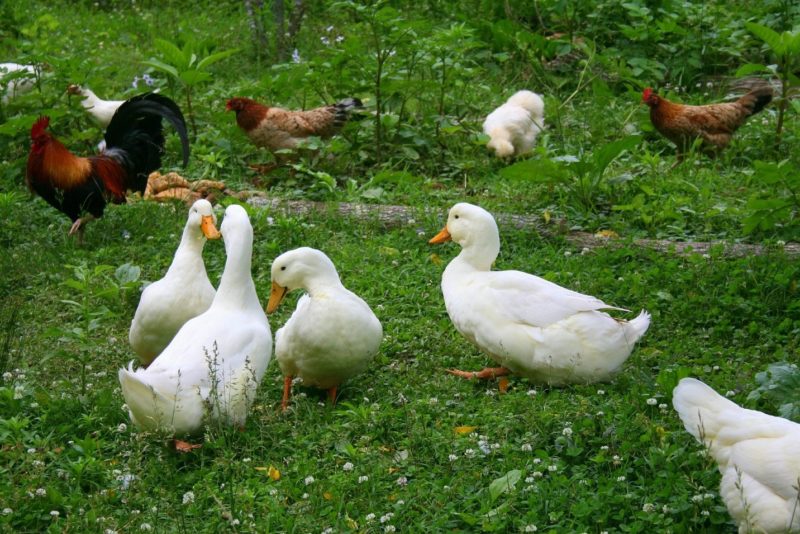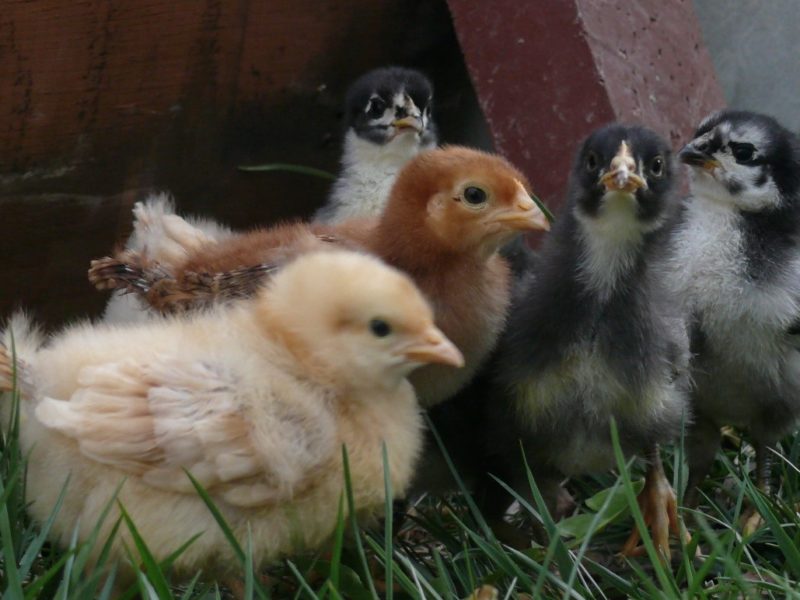Newcastle disease is a highly contagious poultry virus. Learn signs, symptoms, prevention and control for the health and safety of your flock.
The number of backyard chicken enthusiasts has exploded in recent months. Hatcheries and feed stores across the country have seen sales for chicks to first-time customers skyrocket. But many poultry experts are worried that this unprecedented escalation in new backyard chicken owners could increase the risk of one of the deadliest diseases to poultry: Newcastle disease. Whether backyard flocks spread the disease or not is pretty hotly debated, but it’s worth your time to learn more about this virulent virus and some of the precautions you can take with your birds.
Newcastle virus (NCV) is a rapidly spreading and potentially lethal virus that can affect commercial poultry as well as smaller backyard flocks, even in vaccinated poultry. Three forms of the disease exist: lentogenic (mild); mesogenic (moderate); and velogenic (highly virulent, or vND). NCV was discovered in the late 1920s, first in Indonesia, and subsequently in Newcastle-on-Tyne, England, where it got its name. Some researchers believe it may have existed as early as 1898, when Scotland’s entire population of domestic fowl was wiped out.
Symptoms You May Notice
The severity of NCV can vary according to the age and form of the virus strain, with the most common symptoms including respiratory problems such as coughing, sneezing, nasal discharge, and gasping for air. Hens with NCV might experience a drop in egg production, poor eggshell quality, loss of appetite, green, watery diarrhea, swelling around the eyes and neck, and droopy wings. Chickens can also experience nervous disorders that might include twisting of the head and neck, circling, tremors and paralysis. While a wide range of symptoms exist, the disease is so infectious that many birds die without showing any signs of the disease, making it difficult to contain once introduced to a flock.
How Newcastle’s Is Transmitted
Highly contagious Newcastle disease is spread by direct contact with droppings or respiratory discharge of infected birds. Coughing and sneezing birds can contaminate the surrounding air with the expelled virus particles, easily transmitting to other poultry. The virus can also spread by contaminated clothing, especially footwear, as well as food and equipment, and can easily spread from one backyard or farm to another. Automobile tires can pick up the virus, then drive to another location where birds are housed, and infect that flock. Virulent Newcastle (vND), the most deadly form of the virus, can survive on hands, clothing, and footwear, and has been shown to survive in poultry litter and coops up to seven days in the summer, fourteen days in the spring, and as long as thirty days in the winter, surviving in manure up to two months. It’s a common practice for backyard chicken owners to also house ducks or geese with their chickens, which can be cause for concern. Ducks and geese can be infected, but often show no symptoms, so can easily spread the virus to neighboring poultry. This highly infectious and deadly disease is of grave concern to large poultry manufacturers who could lose millions if an outbreak occurs, but should small backyard flock owners be concerned?

Ducks can become infected with Newcastle disease but show no symptoms. Take care when housing both together. Photo by Heidi Hanson, Pixabay.
Risk to Human Health?
While it’s possible humans can contact vND, the risk of infection is rare and symptoms usually very mild. People in contact with infected poultry can get conjunctivitis, a swelling and reddening around the eyes, or very mild, flu-like symptoms. It’s important to note that Newcastle is not a food safety concern, and no human cases of the disease have occurred from eating poultry products, including eggs. The USDA assures the public that properly cooked poultry products are safe to eat.
Risk to Backyard Flocks?
The most recent outbreak of vND surfaced in Los Angeles County, California, in the spring of 2018. Following that initial outbreak, vND was discovered in flocks in neighboring San Bernardino County as well. After imposing strict quarantine measures preventing the movement of poultry across county lines, the state’s Department of Agriculture ordered poultry to be euthanized to prevent the spread of the disease. Over 1.2 million birds, including pet chickens and backyard poultry flocks in those high-risk areas, were killed. Many backyard poultry owners were outraged when euthanasia teams from the state’s agriculture department issued court orders to destroy their small flocks in efforts to control the spread.
The state’s department of Food and Agriculture believes Newcastle continued to spread in Southern California because backyard chicken owners refused state orders to kill infected birds and cease purchasing new birds. In neighborhoods throughout infected counties with a high density of backyard poultry, the risk of disease spread was extremely high, according to California’s Department of Agriculture. Most vND cases in California—more than 400—were traced to small backyard flocks of exhibition birds in southern California. By the spring of 2019, the USDA confirmed vND had spread out of state to a small flock of pet chickens in Coconino County, Arizona, and another in Utah County, Utah. Both were linked to birds moved out of California’s quarantined area.
Finally, after two years of repeated testing and drastic euthanasia measures, in June of 2020, the California Department of Agriculture announced an end to the quarantine. Poultry could move freely within California. Experts hope ongoing monitoring for the disease and strong biosecurity measures at all levels—small flocks and large poultry plants—will help eliminate a re-introduction of the disease. California State Veterinarian Dr. Annette Jones said the state is committed to the continual support for biosecurity training of all poultry owners. The state believes that education and training on biosecurity measures for small backyard flock owners is key to keeping the disease at bay.

Even new chicks that have been vaccinated at the hatchery can get Newcastle disease. Photo by author.
Prevention for Small Flock Owners
Unfortunately, even vaccinated birds can become infected with Newcastle, so it’s essential to follow strict biosecurity safety measures. While biosecurity practices are mostly common sense, it’s easy to become lax with our day-to-day practices. Vigilance is key. If you’re handling chickens, you should always wear gloves, wash your hands immediately, and avoid touching your eyes until your hands have been washed. Mississippi State Extension offers some recommendations to avoid the spread of the virus:
- Post “No Visitors” signs at your driveway entrance.
- Don’t allow visitors where other poultry are housed, and don’t visit other backyards of poultry owners.
- Use dedicated footwear and clothing for working near your flock.
- Maintain an effective rodent-control program.
- Clean and disinfect all coops, crates, and other poultry containers or equipment before and after use. Avoid using wood containers, as they can be impossible to disinfect.
- Isolate any bird that appears sick.
- Wash hands and use hand sanitizers before and after visiting your birds.
- Eliminate standing water, which can attract migrating waterfowl, as they can carry Newcastle without showing symptoms.
- Minimize food sources for wild birds.
- Keep feed stored safe from wild birds and rodents, and clean up spills immediately. Feed can become infected with contaminated feces.
- Never share equipment with other poultry keepers.
- Isolate new birds, birds returning from fairs, shows, or auctions for thirty days.
- Avoid mixing young and old birds. Consider “all in, all out.”
Education is Key
The huge spike in new backyard chicken enthusiasts has raised concern from experts, as a lack of biosecurity knowledge can have deadly consequences. New chicken owners should educate themselves on best practices for keeping backyard chickens healthy, and diligently follow biosecurity measures.

In an effort to educate poultry owners, the USDA’s Animal and Plant Health Inspection Service (APHIS) has implemented the “Defend the Flock” program, which provides resources for flock owners to help reduce the spread of infectious disease. The program offers checklists and other tools, videos, webinars and educational resources to help keep all flocks safe and healthy. You can also sign up to receive a “Defend the Flock” e-newsletter, or follow them on Facebook and Twitter for news and updates.
Spend time with your new chicks to get to know their habits, and watch for any signs out of the ordinary. Sick birds will always isolate themselves from the rest of the flock, so watch for signs of isolation, lethargy, or depression. Know what the signs of Newcastle disease are. If you also keep pigeons or parrots, be especially vigilant, as both are highly susceptible as well. If your flock shows any signs of vND symptoms, report immediately to your local veterinarian or state animal health officials. If you’re in an area with no local vet, contact your county or state extension office for guidance. Quick detection is essential to prevent new spread of Newcastle, and we all need to work together to keep all of our backyard flocks safe.
For more info on the USDA’s “Defend the Flock,” visit https://www.aphis.usda.gov/aphis/ourfocus/animalhealth/animal-disease-information/avian/defend-the-flock-program/dtf-resources.
USDA Fact Sheet on Newcastle Disease: https://www.aphis.usda.gov/publications/animal_health/fs-vnd.pdf
Freelance writer Elizabeth Mack keeps a small flock of chickens on a 2-plus-acre hobby farm outside of Omaha, Nebraska. Her work has appeared in Capper’s Farmer, Out Here, First for Women, Nebraskaland, and numerous other print and online publications. Her first book, Healing Springs & Other Stories, includes her introduction—and subsequent love affair—with chicken keeping. Visit her website Chickensinthegarden












